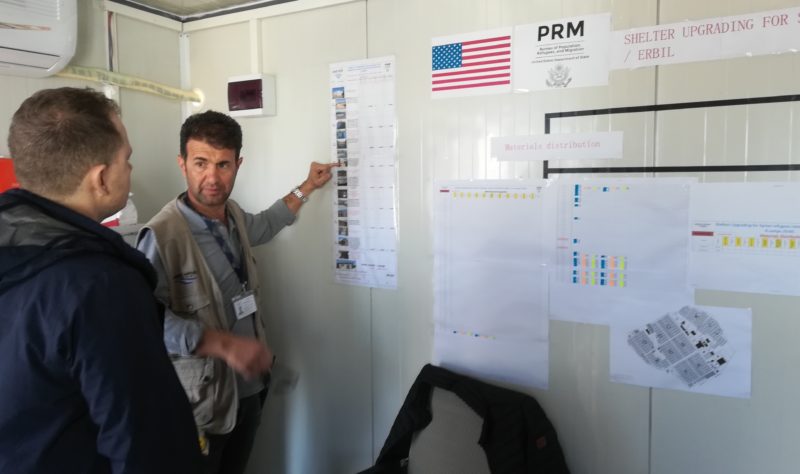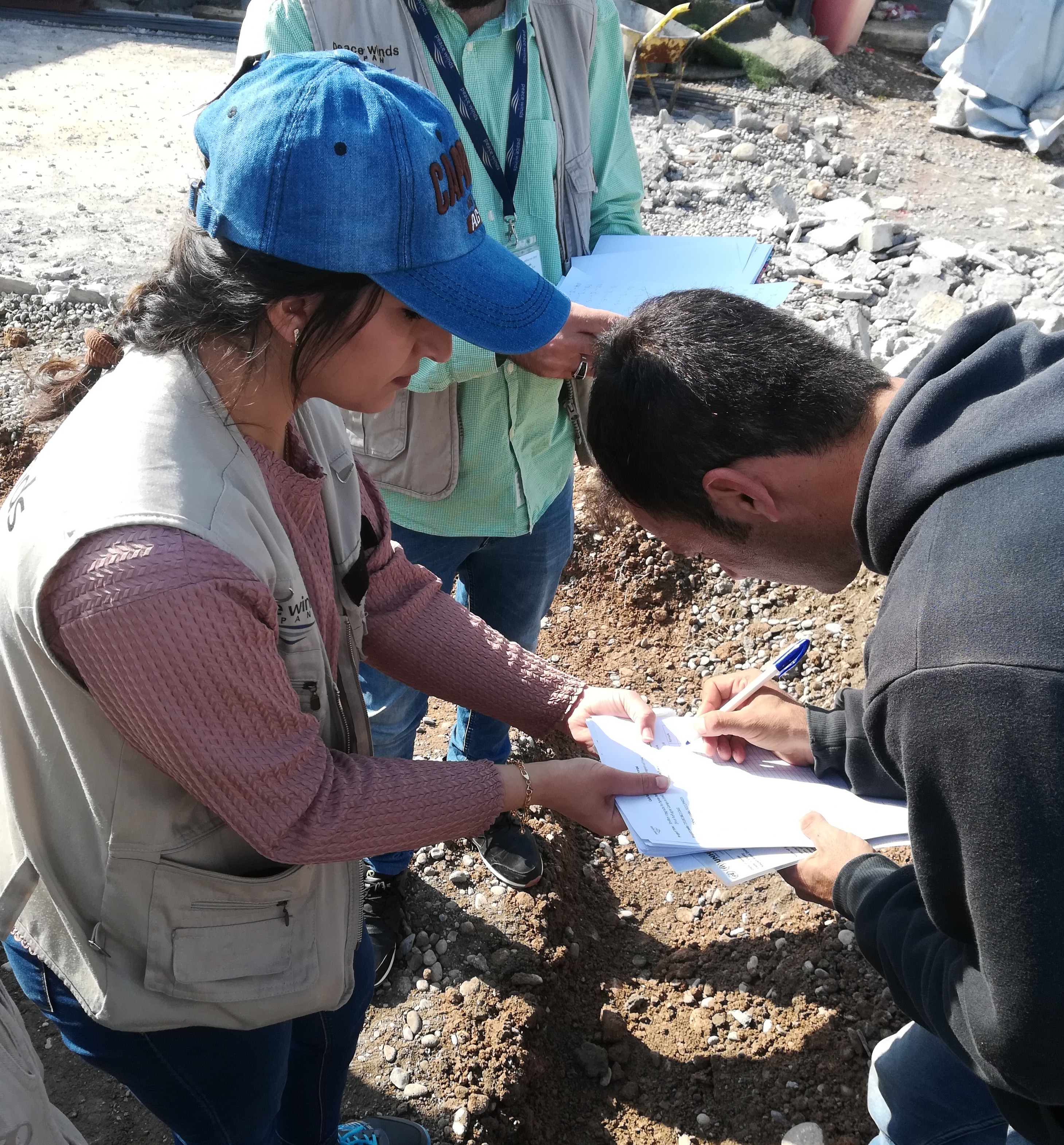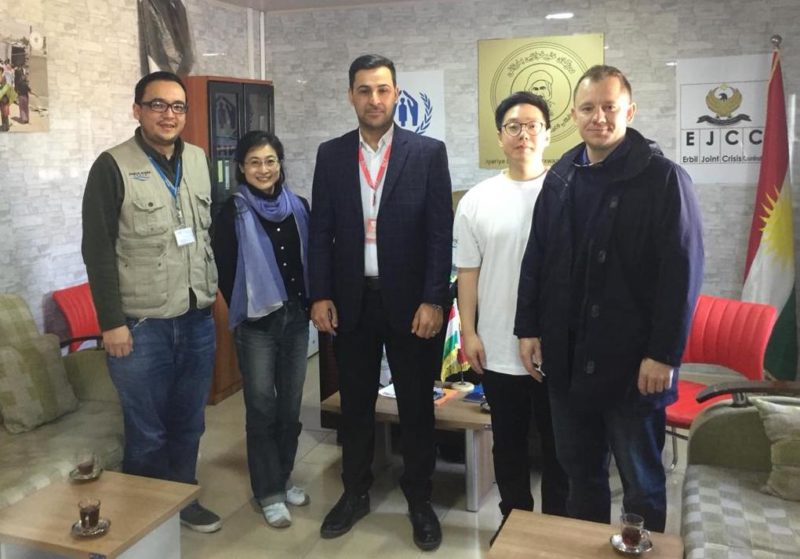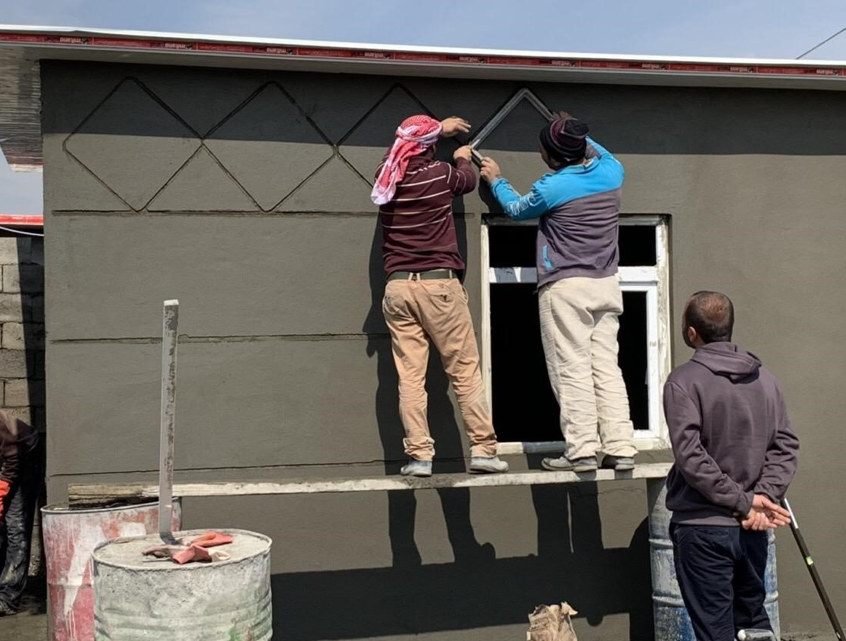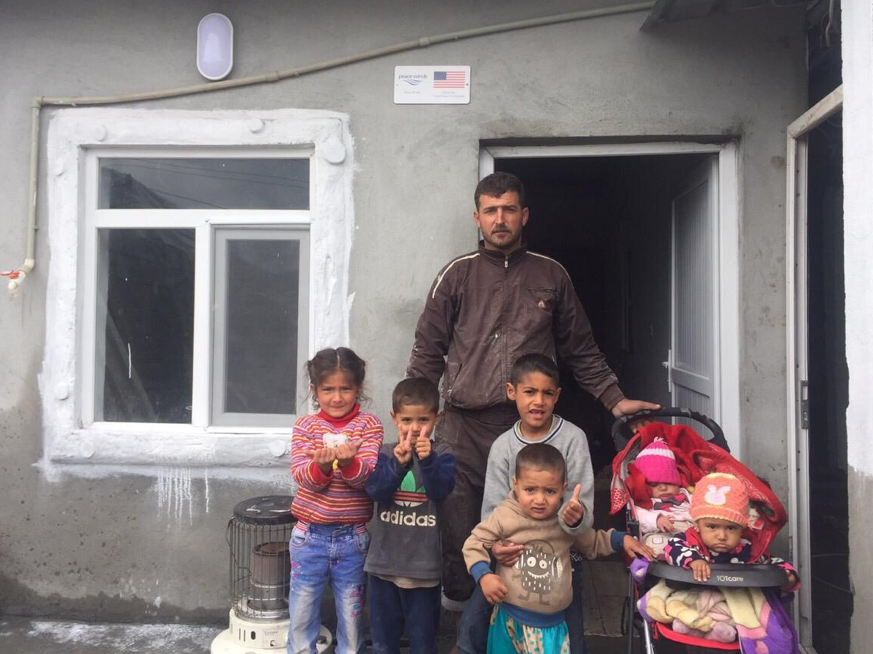Peace Winds staff on the ground in Iraq to assess progress of shelter upgrades
This past February Peace Winds Program Manager, Patrick Hurley, visited the Kurdistan Region of Northern Iraq to monitor Peace Winds’ recently commenced shelter upgrade and Cash-for-Work project for Syrian refugees. The project is located in four refugee camps outside of Erbil, Iraq and is funded by the US Department of State’s Bureau of Population, Refugees, and Migration (also known as PRM). Patrick was accompanied by Peace Winds Japan Desk Officer, Daniel Ok.
Peace Winds is working to improve the living conditions of Syrian refugee families through the provision of more durable shelters for the most vulnerable households in four camps. Over the next two years, Peace Winds will be upgrading shelters and currently insufficient structures that will greatly improve living conditions and quality of life for many residents. In addition to providing shelter to refugees, the project creates temporary employment opportunities through the Cash-for-Work model in which refugees are able to receive wages for participating in the construction of the shelters. After a very detailed assessment of all the households in the camps to determine the most vulnerable and most in need, Peace Winds began the shelter upgrades and Cash-for-Work program in February.
During his visit, Patrick recorded his time on the ground, working with Peace Winds and PRM staff, as well as refugee communities:
Our first stop was in Darashakran Camp where 120 shelters are scheduled to be upgraded in the project’s first year. At the camp office, Jaseem, the Senior Engineer, showed us the technical plans of the shelter upgrades along with the implementation strategy for Darashakran Camp.
Jaseem led us to where several shelters were undergoing upgrades. The site was bustling with activity – laborers working, trucks delivering building materials, and Peace Winds staff supervising the construction and paying the laborers. We witnessed the three essential activities of this project – delivery of materials, construction, and paying laborers – being performed efficiently and on schedule.
As we walked through the camp, residents of a newly built shelter invited us in for a cup of tea. One resident had just finished clearing his plot in preparation for construction, so he pulled out several chairs and we sat in the middle of the plot. As we sipped our tea, we looked around and asked about his plans for the new shelter – shelter owners are allowed some flexibility in the design so that they may choose a layout that is best for their location and living situation.
That afternoon, we visited Kawergosk Camp, the largest of the Syrian refugee camps in Erbil Governorate and where Peace Winds plans to upgrade 348 shelters. Here we met with the United Nations High Commission for Refugees (UNHCR) Coordinator and the Kawergosk Camp Manager. We discussed the overall condition of the camp, the situation around the region, and challenges the camp faced. We were pleased to hear that the shelter upgrade projects are generally the favorable type of assistance among refugee communities, as well as the camp management and UNHCR. Of course, other projects such as WASH, education, and health are equally important, but shelters are extremely personal and tangible – the effects are immediate. The beneficiaries and camp stakeholders welcomed this project and thanked Peace Winds and PRM for addressing this need directly.
The next day, we went to the Basirma Camp, where ten shelters were set to be upgraded, and visited one of the shelters under construction. The excitement was palpable as the family members watched the shelter owner and laborers install the roof frame.
That day the PRM Coordinator based in Erbil visited to review the progress of the project, witness the construction in action, and connect with the residents. We explained our ongoing activities, implementation procedures, and plans. We were happy to hear the residents were very satisfied with the project as well as the upgrades performed. We were generally impressed by the efficiency and effectiveness of the coordinating staff. In this first year, we are ontrack to upgrade 720 houses and provide wages for about 12,500 days of work. We look forward to returning as we transition to the next phase of the project.
I have confidence in the success of the project due to the commitment and expertise of Peace Winds field staff. Additionally, the model of the project provides refugee communities real ownership and provides each family a stepping stone in rebuilding their lives post-conflict.
To contribute to directly to providing Syrian refugees with housing and employment opportunities, click here. To donate to Peace Winds’ general programs, click here.
